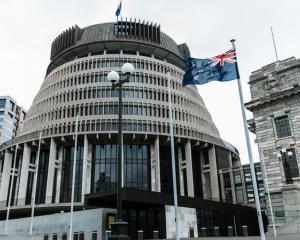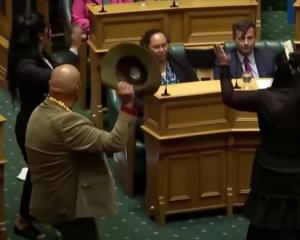The move, so that Fisher and Paykel Appliances can expand its design centre, would be ''business friendly'' and a ''positive economic development opportunity'' for the city.
Nine advantages for going ahead are listed and only one disadvantage.
Similarly, nine disadvantages are itemised for not proceeding, with only one advantage.
The one drawback of the $2.3 million investment is that this money was to have been used to repay debt.
Two properties have been identified for sale and the money will be earmarked to fund the F&P work.
While the decision, overall, appears pragmatic and sensible, the matter is not entirely straightforward.
There are arguments the council could be, or at least could be seen to be, playing favourites, just as the Government has been accused of favouring foreign film studios over Hillside railway workshops or casinos ahead of local manufacturing.
And why should the council help one business or industry and not others?
Would the current jobs have been secure and the expansion have gone ahead anyway?
How long will F&P stay in Dunedin?
Is this an example of corporate welfare?
The Dunedin City Council has, in the past, helped several companies with rates relief only for job numbers to be later cut or businesses closed.
Nevertheless, it would be all too easy for F&P to shift design work and the accompanying call centre (for Australia, New Zealand and parts of Asia) away from the city.
Absent are the personal and sentimental links that sometimes influence decision-making through Dunedin ownership or through the city being the home of top-tier senior management.
Fisher and Paykel Appliances is now owned by Chinese company Haier, and its New Zealand head office is in Auckland.
Who is to know whether personal contact is making any difference in Haier's decision-making. A Dunedin delegation, led by Mayor Dave Cull, visited China last year, and included Haier's headquarters on its itinerary.
Despite the advantages of Dunedin, there is a default bias in New Zealand to base operations and to centralise in Auckland, Christchurch or sometimes Wellington.
Haier need not be part of that.
It was in 2008 that F&P - and it had had assistance from the council over the years - decided to close its dishwasher and stove factory on the Taieri, with manufacturing shunted overseas.
The retention of the design capacity along with the call centre, were positive features in what, overall, was a thumping blow to greater Dunedin.
The expansion of the F&P design centre in Dunedin is excellent news especially because of the city's hammering on the job front over the past couple of years.
While the city council will take flak whatever it does, it must be business friendly and facilitating the expansion was its best course.
As Mr Cull has said: ''They are not just jobs. They are exactly the kind of jobs, creating high-quality, high-value IP [intellectual property], that we recognise we need to create in this city.''
In prospect are about another 65 staff. Many will be recruited from outside the city and some will bring partners and families.
The fact Wall Street is in George St is good for the city.
Dunedin's main street is one of its charms and attractions and the presence of about 220 F&P staff on the doorstep must bolster the central city.
An analysis for the council claims 43 further downstream jobs would be created with up to $11 million more being pumped into the local economy.
Whatever the actual figures, new positions in Dunedin will have flow-on effects.
In the ruthless world of international corporate business, there have to be specific reasons to come or stay in Dunedin.
If the council can build on city strengths, protect its tenancy of the Wall Street mall and foster jobs, then that is what it must do.











